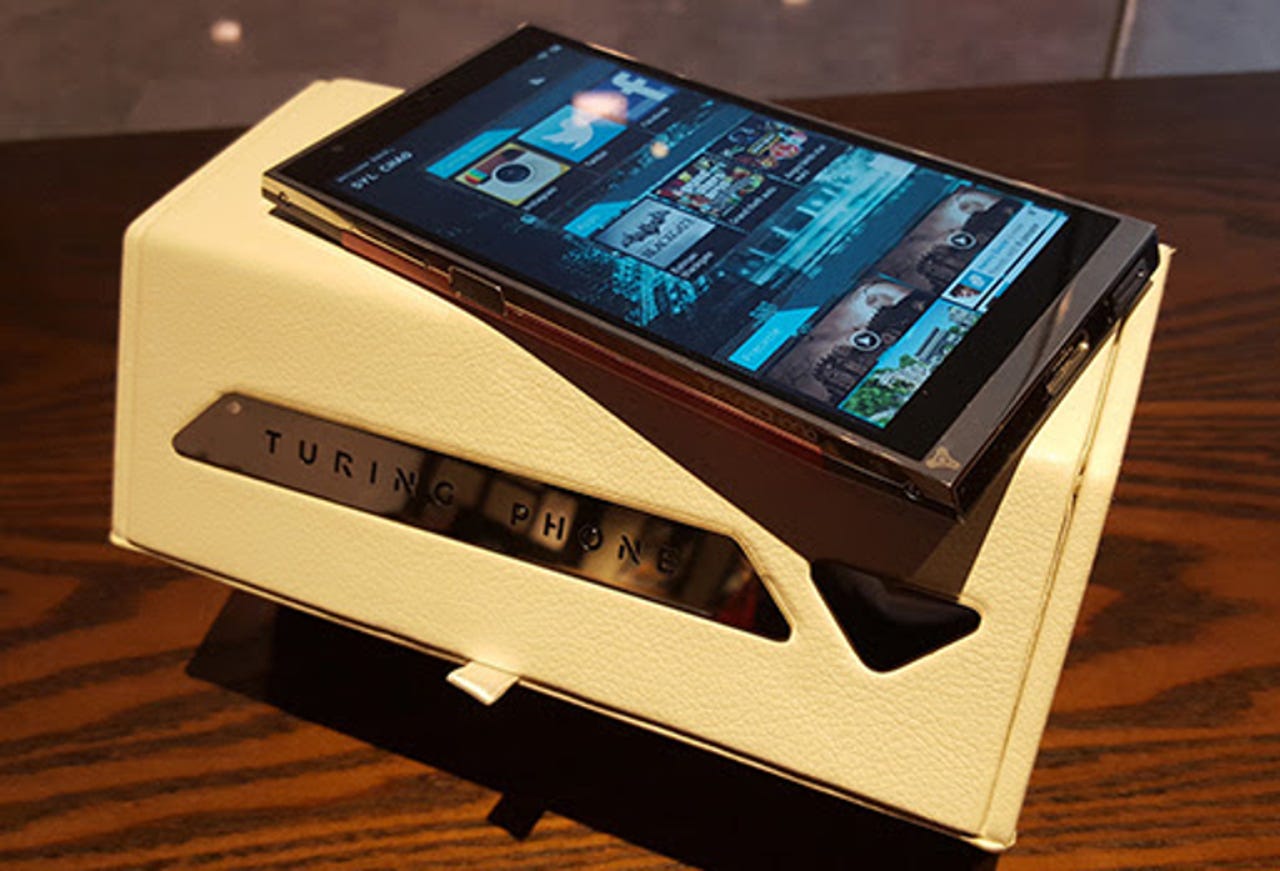'Ultra-secure' Turing Phone buyers told: Sorry, new delay now means May or June delivery


It will be the fourth time the company has failed to meet its delivery schedule for the Turing Phone.
Turing Robotics Industries says pre-ordered 'hacker-resistent' Turing Phones will arrive by the end of May or beginning of June, breaking an earlier promise of deliveries by the end of April.
The company sent an email to customers over the weekend pleading for patience as it gears up for its official launch of the Turing Phone following its pre-order campaign in December.
"We know you have been getting impatient about the delay. However, please bear with us while TRI [Turing Robotic Industries] prepares its official launch," the company told customers.
It will be the fourth time the company has failed to meet its delivery schedule, the last of which came in February, when it pushed back the expected shipment date from "no later than the end of Q1" to the end of April. Previously it failed to meet its December target.
Smartphone survival test
With April passed, TRI CEO Steve Chao told ZDNet that pre-order customers will definitely receive their Turing Phones "by May or early June".
"Everything is on schedule and we intend to sell a lot more of the current model in markets such as China, India, and Middle Eastern countries," he said.
According to Chao, TRI had about 12,000 reservations before launching pre-order sales in September. However, today, due to delays and changes to the smartphone, some have dropped out.
TRI initially touted the Turing Phone as an ultra-secure 5.5-inch display smartphone running Android 5.1. Its frame is made of liquidmorphium, a metal alloy that is supposedly stronger than steel or titanium.
It would also feature a Snapdragon 801 processor, 3GB of RAM, a 13MP camera, and 3000mAh battery. Prices started at $610 for the 32GB model and went up to $1,299 for the special edition Dark Wyvern Glaedr model.
But in February, TRI announced it would switch from Android to the lesser known Sailfish, a Linux-based OS from, as of today, formerly-cash-strapped Finnish smartphone firm, Jolla. Jolla today announced it had closed a $12m funding round to extend its licensing business.
Chao said the switch to Sailfish OS resulted in about 12 percent of pre-order customers cancelling their orders. But he is confident those who remain will be more than satisfied.
"Back in February some people dropped their pre-sale order and we got a lot of attacks from the media around the world because there is a huge Android camp of fans out there. But eventually people will find out that Sailfish is safe, that we have a safe security layer. There are no loopholes like Android. So the challenges may turn into advantages in coming months," Chao said.
"This wonderful OS has been extremely undervalued. We took the software and we designated a team who have been working on this since late last year. We started in December. And now we have optimized it to a point where even with the current hardware spec of the Turing, it is still running extremely fast. And this operating system has the ability for our company to generate our own ecosystem," he said.
So why did TRI choose Sailfish and not another alternative, such as Cyanogen OS?
"The answer is very simple," Chao said. "We tried to reach out to them but never got a reply. We tried, like, five times and never got a reply. So we passed."